
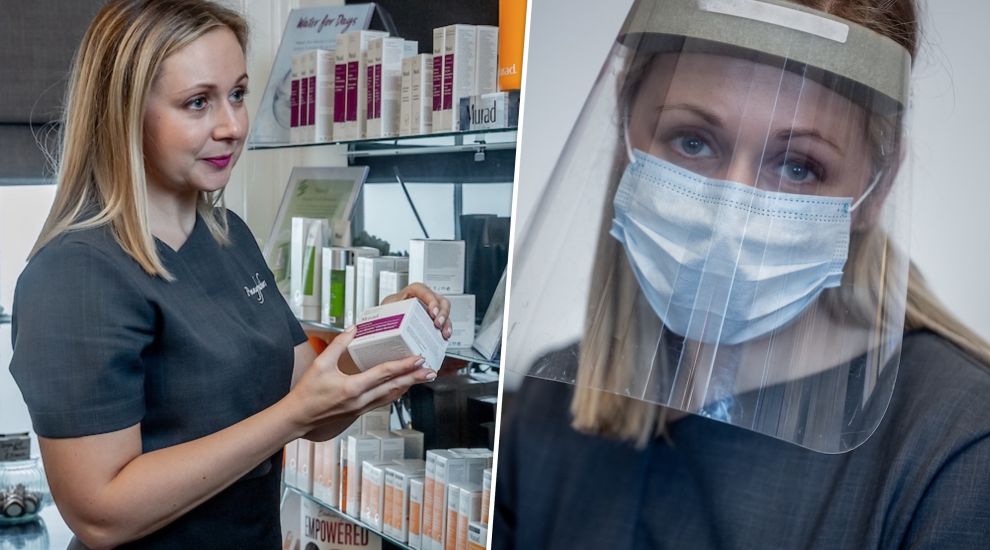
It was perhaps even more a feature of ‘lock-down’ than the strategically placed book-case in the background of video calls: the unkempt hair, showing in many cases, its true colours.
The Beauty industry was one of the hardest hit by this year’s covid regulations, and even though the salons are open again now, the ‘virus effect’ continues to very keenly felt.
But for many in the business, this year’s experience has only confirmed the impression that it is a ‘forgotten sector,’ which goes under-valued by both the government, and the general business community, alike.
In reality, it is a collection of vibrant small businesses, who together play a vital role in delivering a very real ‘feel-good’ factor in our economy.
With challenges such as further covid restrictions, and continued recruitment problems on the horizon, Express spoke to Penny Downes, owner of skincare clinic, Pennyfeathers.
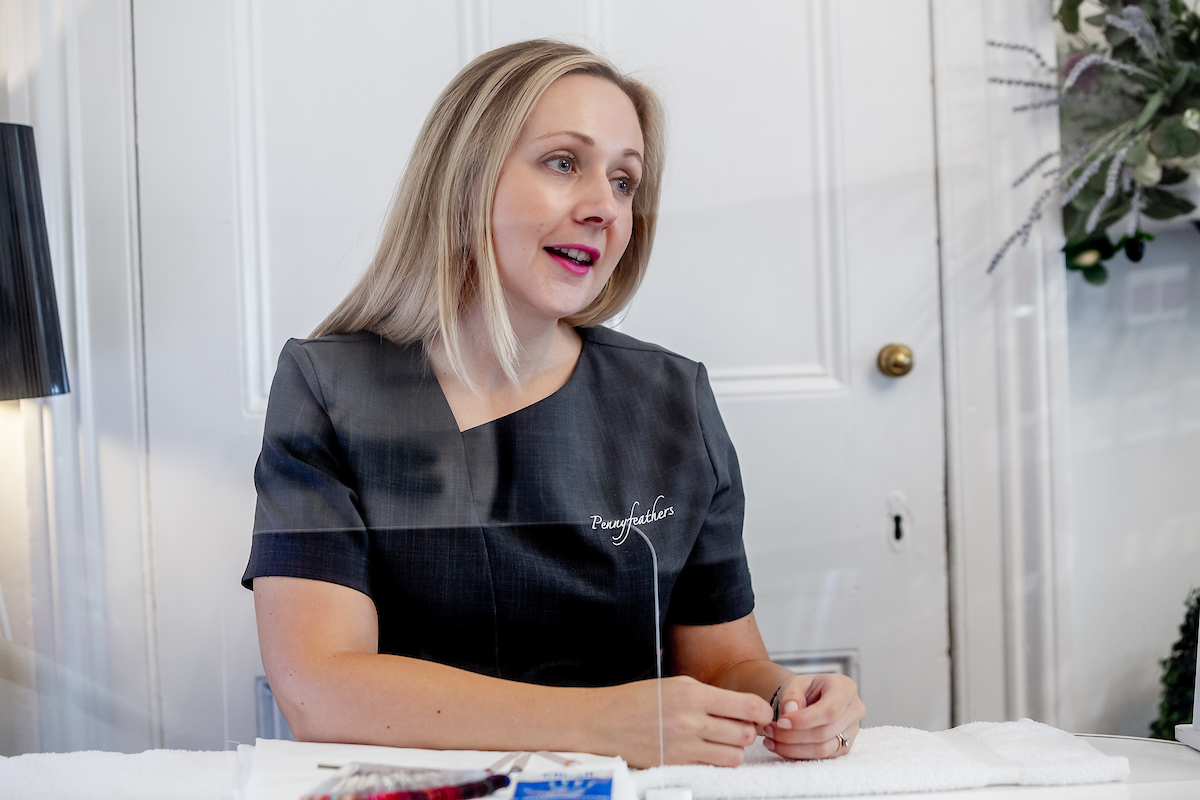
Pictured: Penny Downes, owner of Pennyfeathers, shared lessons from her 20 years in the sector.
Celebrating 20 years in the sector this year, she shared some of her learnings accumulated over the course of her career and more recently in response to the pandemic...
After the initial shock, stress and emotion of being forced to close earlier than expected on March 23rd, I knew I had two choices. First, to allow it to keep me down; or second to knuckle down, and tweak my business model to include a greater focus on retail and teaching.
The beauty sector was one of the first to close - and last to open - and I feel this is totally down to the lack of respect governments have for our industry – despite miles of column inches being devoted to ‘at home’ tips for body waxing and facials throughout lockdown, and home hair care.
No other industry seemed to be missed quite so much by the media: famous newscasters such as Tom Bradby were heard to complain on screen about their long, graying hair – and even our Chief Minister was in dire need of a branchage by the end of it.
Retail has always been a side of the business that I wanted to grow and this was my opportunity.
Via the use of my social media sites, I began recording video tutorials of every product I had to sell. After posting them each day, clients started to reach out telling me it cheered them up and it was like seeing me in the salon. In turn, sales increased and I delivered hand-wrapped Pennyfeathers Parcels around the island each Friday, adhering to the guidance we had at the time. I ensured the personal touch was at the heart of what I did. My strap-line is ‘putting the treat back into treatment,’ and I needed to follow this through, even in a non-contact period.
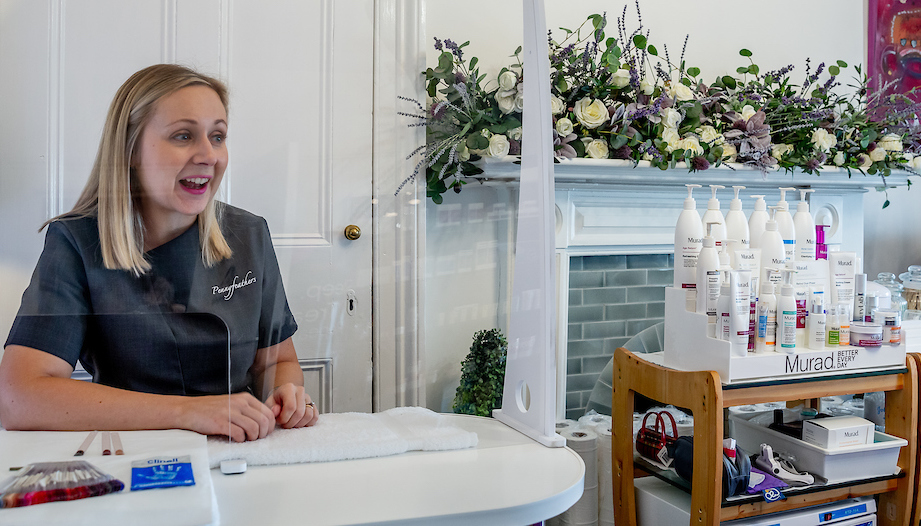
Pictured: Penny adapted to the circumstances by using social media to market her products.
As we carried on being home, I then took the chance to teach my viewers how to perform some beauty treatments at home. Simple tutorials on brow shaping, nail painting, gel removal, ‘at home’ facials and how to use essential oils at home became very popular. I was then lucky enough to record some IGTV sessions for Murad, my skincare brand of choice. I made sure I kept my contact up too, via a weekly news letter and made regular phone calls to some of my more vulnerable clients.
When we were forced to shut up shop, the beauty industry was totally overlooked for financial help by the government. This concerned me greatly, as both my husband and I were financially affected by the pandemic for much longer than we planned.
This oversight was, in my opinion, totally down to the lack of communication we have as a sector, and the lack of a professional body - this needs to be rectified.
This was infuriating, very worrying and extremely stressful for me and every salon in the island. I was very lucky to have built back-bencher support, which finally achieved some help via the Co-funded Payroll Scheme. My personal wellbeing, and that of other people in the business of wellbeing, did suffer as a result.
On the return to business on June 12th, I felt the lack of clarification on guidance wasn’t helpful. We had the official document the night before opening, detailing exactly what measures we had to take, and additional protection we had to provide for our clients; therefore, some businesses weren’t ready and this again added to the pressure, and the feeling that some took it too seriously and some didn’t.
Apart from a sector seeing a huge turnover fall to zero turnover within a day, I feel we took a step back, and became more vocal in society and banged our drum about the profession. We are valued by our clients, but not the ‘traditional business world'.
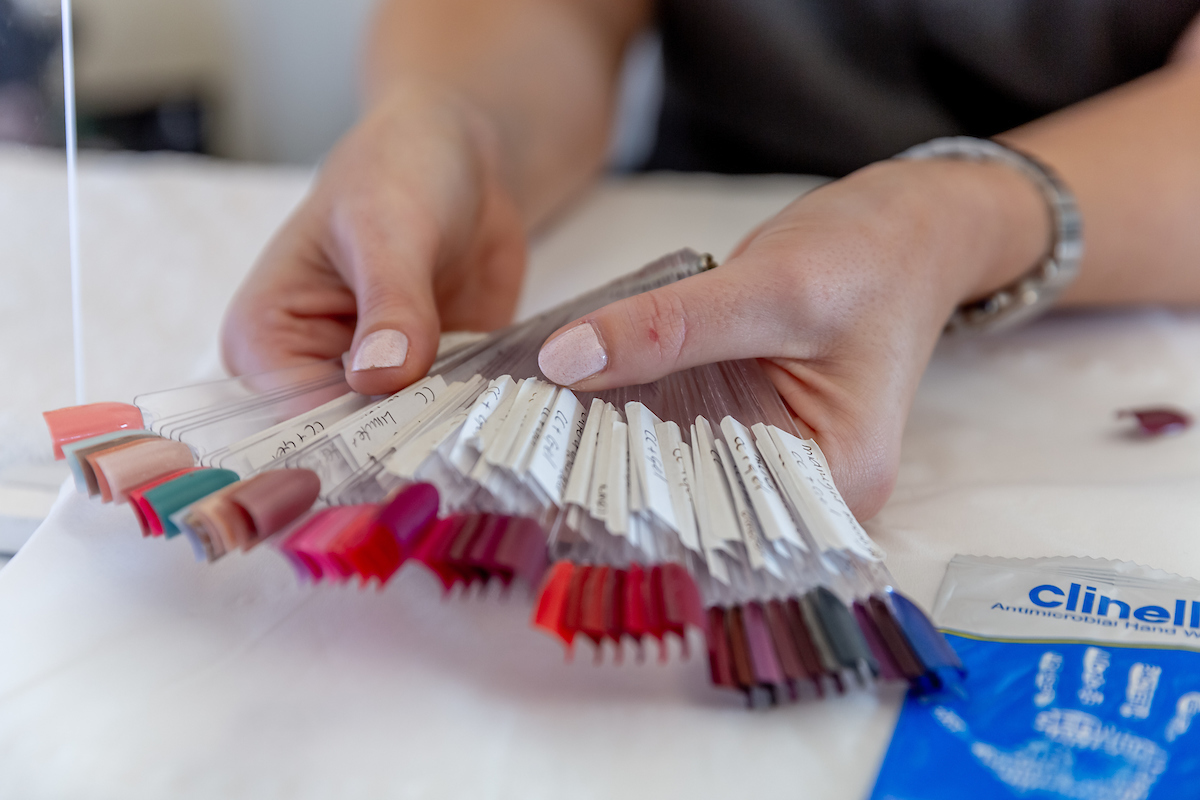
Pictured: Penny had to fight for financial support.
The Beauty and Hairdressing sector grew more united and began to share ideas, and support each other. It was also great to see salons take pride in their cleaning, hygiene and customer service elements, when we were given the nod to open.
We already had such strict, and structured, hygiene protocols in salons before covid we actually got to a share these with people who had no idea what education we have during our three plus years of formal training in a specialised college.
The financial support has been as sufficient as it can be for a small island, and many salons are grateful that it has been extended.
However the lack of time given to open safely in June was disappointing and then the initial opening guidance was too restrictive for the Beauty world. The non-negotiable rules have meant many salons couldn’t open, or too many were working under the radar to provide services which actually brought a profit.
Again, a lack of understanding and education on what we do behind the scenes meant our sector was misguided for opening.
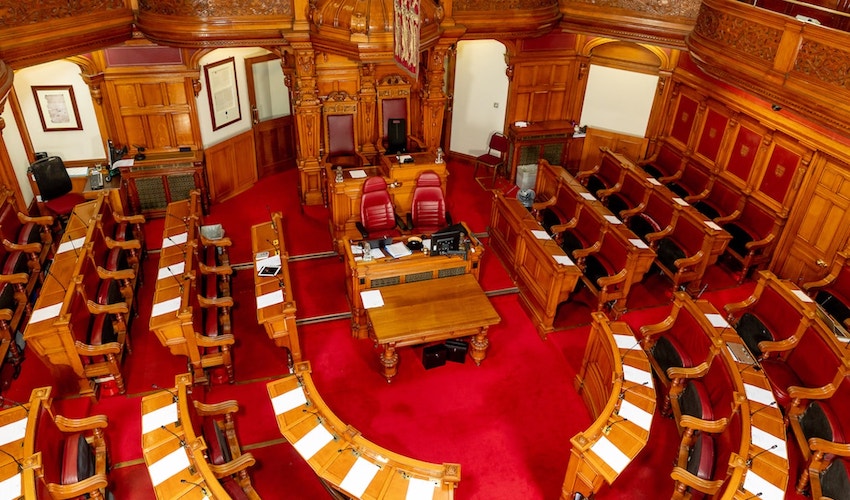
Pictured: Penny lobbied States Members to help them better understand the sector's situation.
The ongoing support is starting to slow, which is a disappointment as we still have to factor in increased cleaning regimes, more staff needed to support our new way of working and extra time with clients as the PPE hinders us; this in turn means fewer clients, more outgoing and less income meaning many salons have had to increase prices significantly.
I personally lobbied many States Members, both Council of Ministers and back-benchers, for support during the entire island pause, and I was gratified that they were accessible. Some showed great support and listened; some not so much. However, I didn’t give up until the day I opened my salon door again.
I am a massive advocate of masks and feel they should be worn in all indoors spaces. This is controversial I know, but I truly believe that good hand hygiene, and masks, are our secret weapons to keeping the virus under control in the community.
PPE has been a huge expense for each salon which has either been absorbed, or added to clients’ bills.
If we had been able to negotiate bulk-buying for the sector or some kind of subsidy, salons would be more profitable. I also feel a more consistent level of plain English communication between Government, Public Health and external bodies who guided us on rules would have been a benefit.
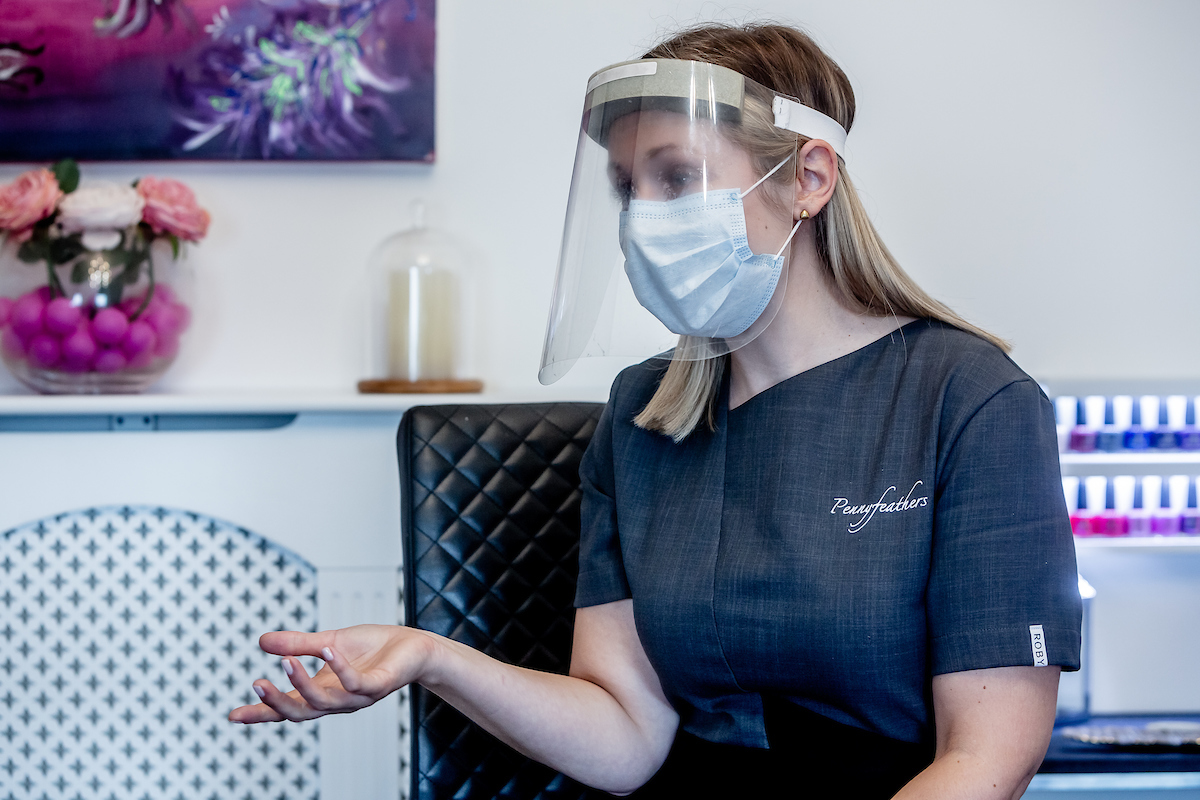
Pictured: Penny describes herself as a "massive advocate of masks."
A lot of important information was misread or misunderstood, which led to confusion for many. Concise rules which are strict and observed will keep our standards even higher. We need to try and have better support from landlords and utility providers,if we need to stop or reduce working hours again.
Some of us were well supported but sadly I know of many who weren’t. After all, each business in Jersey was affected and a little compassion wouldn’ go amiss. Rents and utilities are high here and support from these would help salons in the future. A reduction in self-employed social security contributions would also have been welcomed . The deferral periods were great but in the long game, it only plugged a gap which is now fully open again.
We are a strong, and much-needed industry on a very financially buoyant island. Jersey has a spending culture and the beauty industry welcomes this. Loyalty between clients and therapist is very special here and this helps keep busy, healthy businesses after all.
It’s about the feel-good factor and we drive this. When we returned many salons worked solidly without time off for four weeks or more, just to ensure each client was looked after.
Before the advent of social media we were the original influencers. You want to hear about the latest restaurant, best handyman or holiday destination of choice, you ask your beauty therapist or hair stylist! We are a mine of information, we spend our working days talking and soaking up information, some confidential which we respect, some which we are able to pass on to assist others.
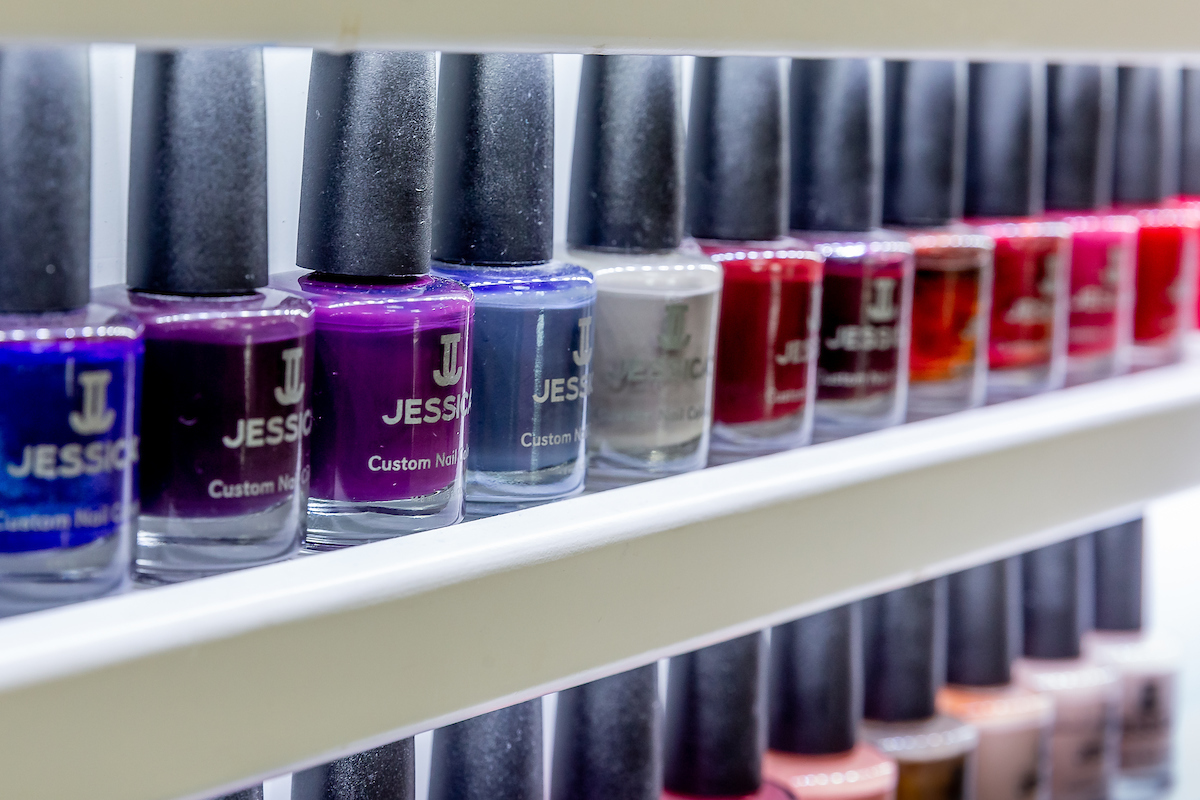
Pictured: "We were the original influencers."
The main challenge that we face is recruitment, this is vital for a good salon and sadly we can’t always find the right candidate. The lack of non-qualified licenses is frustrating for many as unfortunately we are not deemed ‘essential employees.’
We as a sector, would also like formal regulations - this seems to buck the trend for most business sectors, however we work within good guidance and regulations. By formalising these for the island, this raises the bar for all salons to give good treatments and salon industries to boom.
An association, or committee, to represent us is a must for a solid future. The final challenge we face is being taken seriously as a sector. We have some great beauty and hair training venues full of passion, professionalism and knowledge. Everything is underfunded as it it seen as a ‘dead-end’ job; this needs to change. We train for a minimum of three years and our skills are continuously upgraded (I am always doing CPD) - yet we are still seen as ‘air-heads’ or school drop-outs.
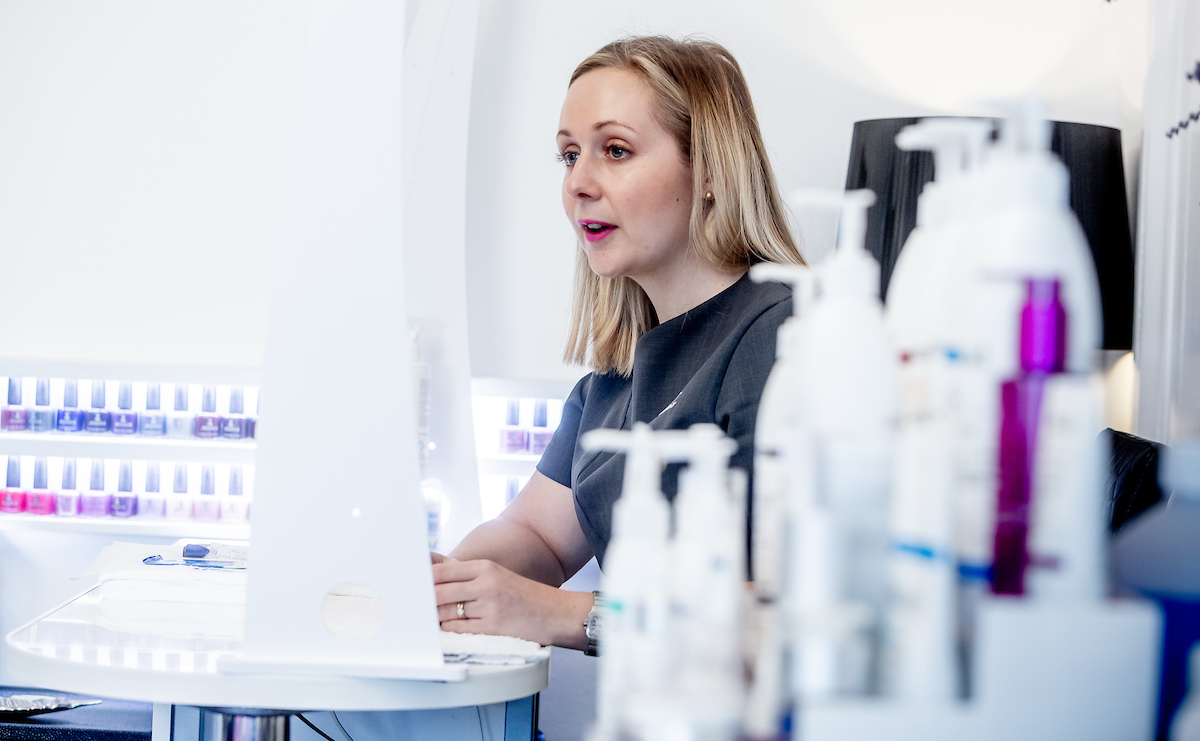
Pictured: "We train for a minimum of three years and our skills are continuously upgraded... yet we are still seen as ‘air-heads’ or school drop-outs."
When I chose beauty as my career path, I was told by my school I would never make anything of myself, and what a waste of a great education. Lots of youngsters get this reaction and it needs to stop. We can be high-earners and we as a sector contribute a huge amount to the economy and masses to wellness, health and wellbeing . Everybody leaves my salon feeling better than they did when they arrived. How many businesses can you say that about?
This is a profession that isn’t for the faint hearted, with long days, hard work and dedication - but we all love what we do, and many of us don’t even see it as work.
Comments
Comments on this story express the views of the commentator only, not Bailiwick Publishing. We are unable to guarantee the accuracy of any of those comments.